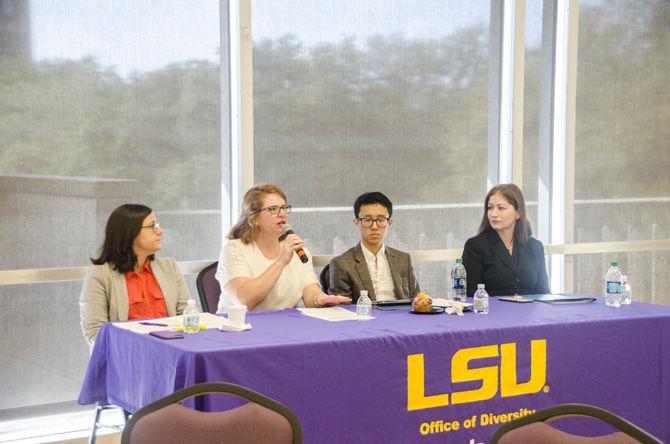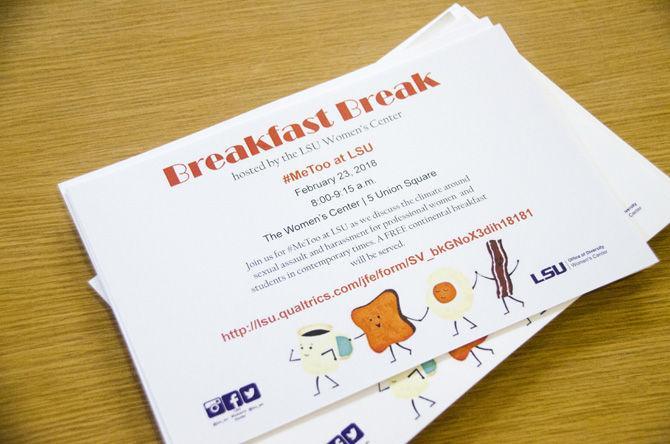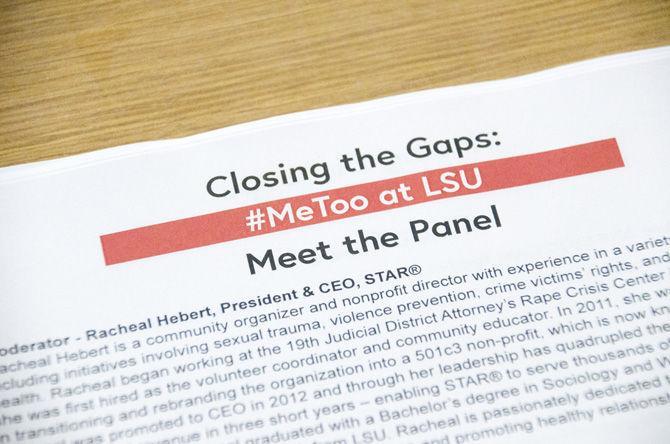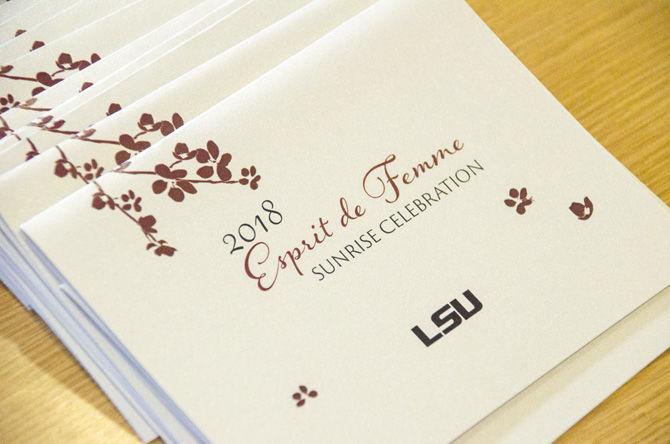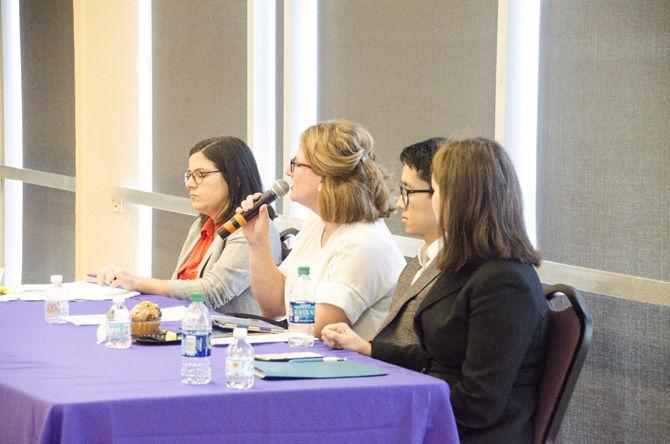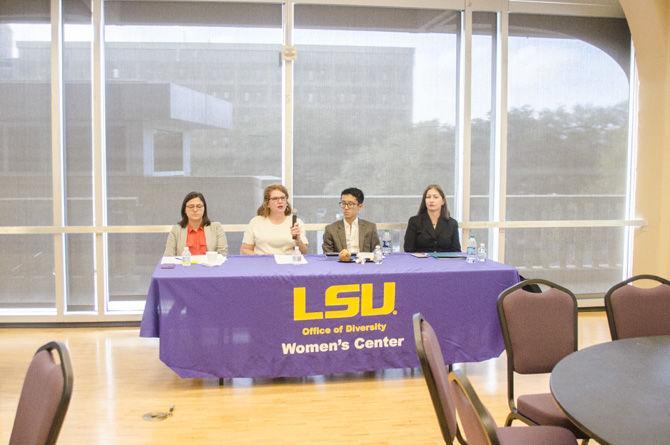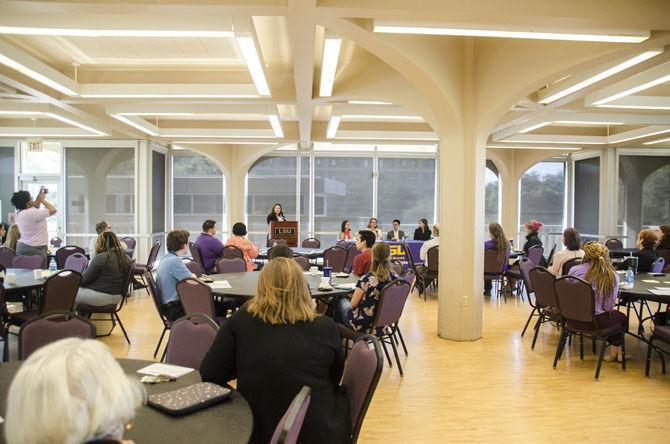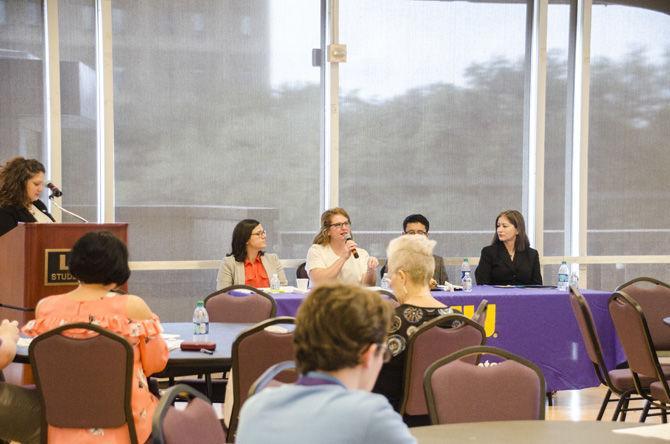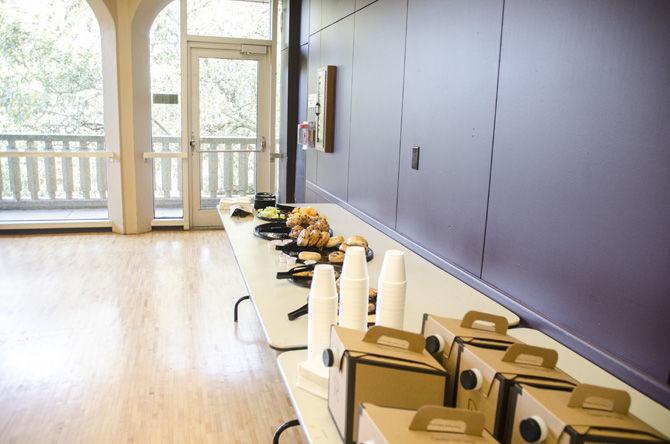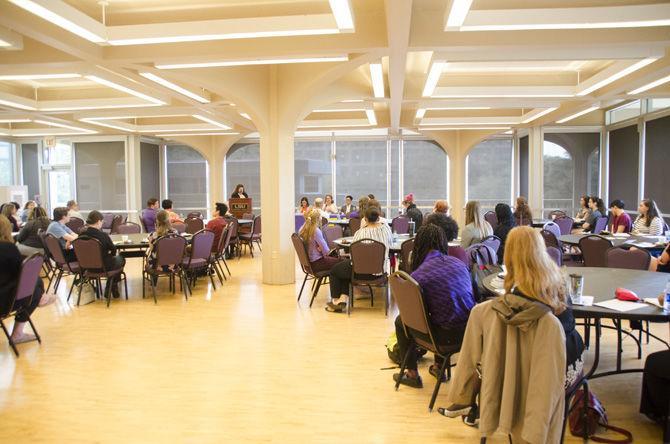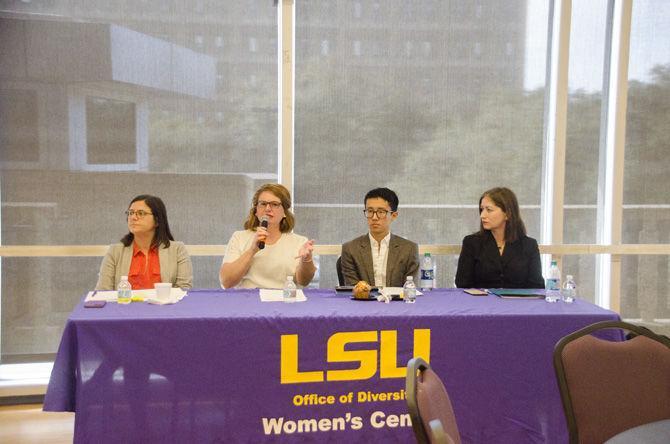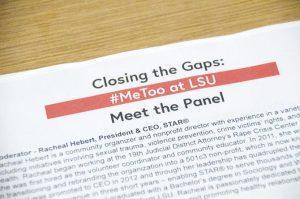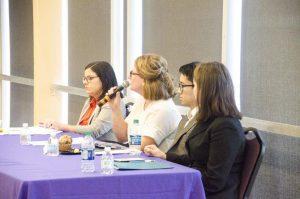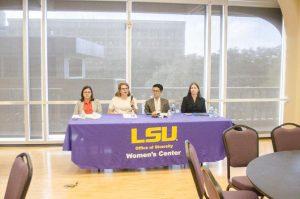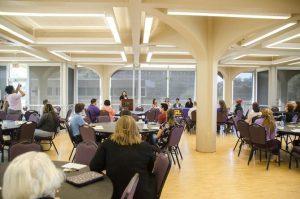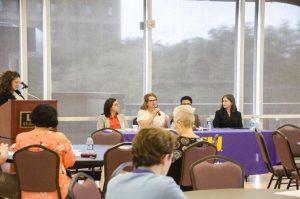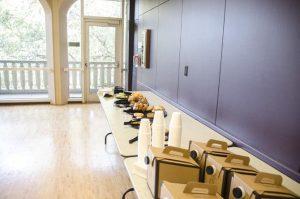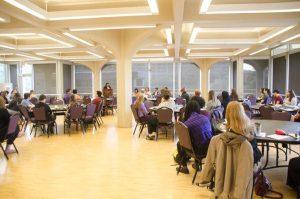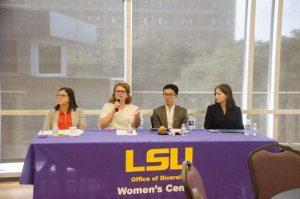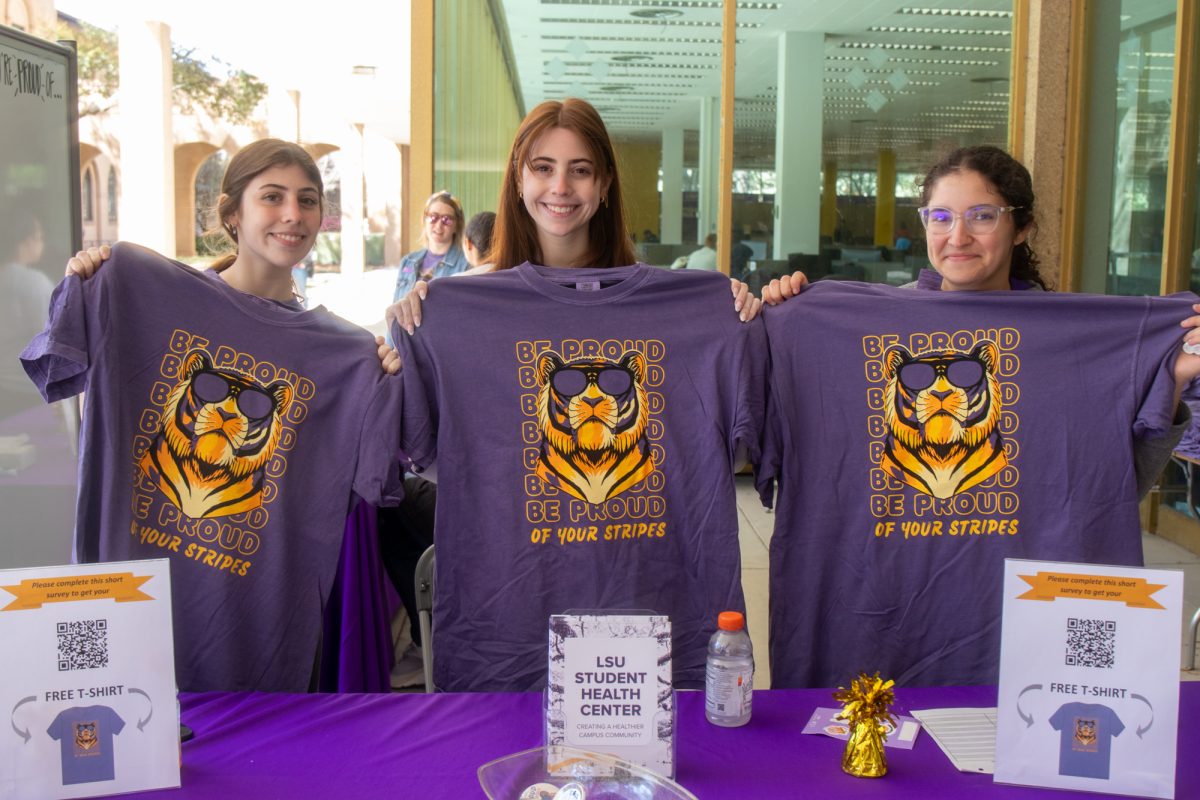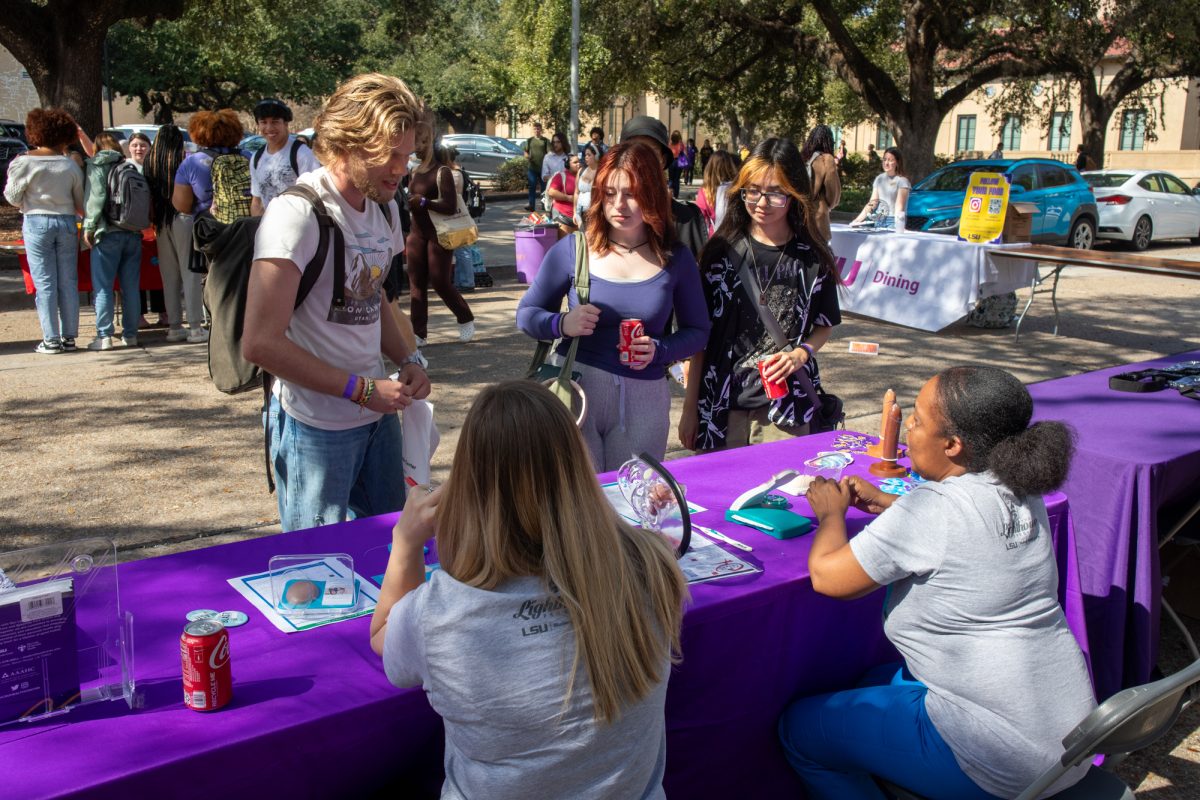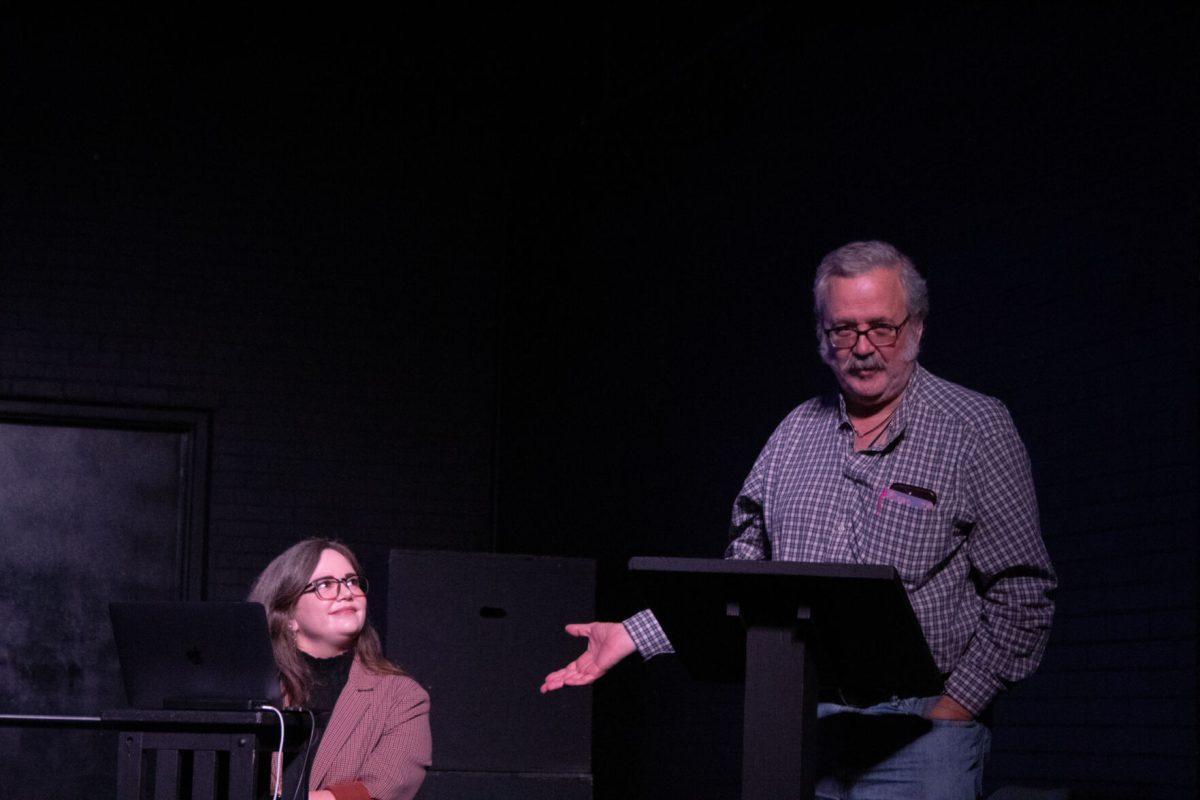On Feb. 21, the Atchafalaya room in the LSU Student Union slowly filled with women, as well as a handful of men. The room quieted as the #MeToo panel began their discussion of the climate around sexual assault and harassment for professional women and students.
Many University students and staff attended the event to be heard, find resources and get advice on their own workplace situations. Adrienne Sanders, a University employee working in human resources, expounded on her reasons for coming.
“It’s a very male-dominated field in academia,” Sanders said. “Sometimes just earning their respect, I feel like I have to really work for that. Especially because I am young, I look really young, and people just assume I’m a novice at things, that I don’t understand what’s going on. I get things explained to me a lot and earning that respect is always in the back of my mind. Hopefully my co-worker and I will get to take these things back to the office and share what we’ve learned.”
The panel was moderated by Racheal Hebert, president and CEO of STAR, a non-profit dedicated to supporting survivors of sexual trauma. The panelists were Andrée Cullens, a partner at the Taylor Porter law firm; Kasey Windels, University associate professor in the Manship School of Mass Communication; and Don Zhang, University assistant professor in the Department of Psychology. The director of the Women’s Center, Summer Steib, weighed in on the panel.
“It’s not just geared toward faculty or staff or students, or one department, but really bringing everyone together,” Steib said. “This particular panel is #MeToo at LSU, and so with the past several months we know from a national, international and even local perspective that this movement around sexual harassment, sexual assault has really been a part of conversation that lots of folks are having. We thought it would be very timely and necessary to include LSU in that conversation.”
Discussions on the University’s sexual harassment and assault resources took place, as well as a general discourse on the negative psychological effects workplace harassment can cause, for both victims and bystanders. One panelist compared this harassment to secondhand smoke, in that it is harmful just to be around. The origins of the #MeToo movement and its growing popularity were also mentioned, as well as the repercussions of reporting workplace harassment.
Workplace harassment is an especially pressing issue for women. According to the June 2016 EEOC Select Task Force on the Study of Workplace Harassment, nearly half of women have experienced some form of sexual harassment at work. Nearly three out of four individuals who have experienced harassment have never reported it, or discussed it with anyone. Seventy-five percent of harassment victims who have reported harassment reported facing some form of retaliation. And even without sexual harassment, the workplace can be difficult to navigate, Windels said.
“I think that it’s not to blame anyone, it’s just a very different experience that, when I come to the table as a university leader,” Windels said. “My being at the table has been a very different journey than perhaps the men at the table.”
But the University’s #MeToo movement is determined to change this, with outreach, sexual harassment training and spreading knowledge. They are optimistic about getting the next generation active and passionate about the cause.
“I just want to know how to get involved outside of just the Baton Rouge community, on a larger scale,” said Jennifer Burleigh, a senior majoring in English. “I got really involved in the #MeToo movement when it started and I wanted to know more about how it’s active in our community.”
The #MeToo event was hosted by the LSU Women’s Center alongside the Office of Diversity and the University Council on Gender Equity. It is the ninth panel in a series called “Closing the Gaps.”



